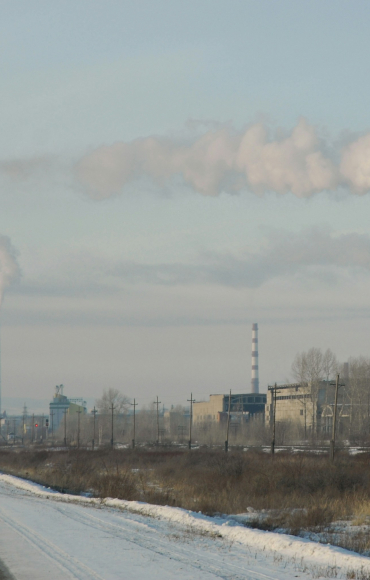
The Poison of Prishtina That Makes Every Breath a Struggle
The Poison of Prishtina That Makes Every Breath a Struggle A winter morning in Prishtina often begins under a heavy, grey sky, where the air feels thick and each breath reminds you of the...
Pollution from Kosovo’s coal power plants increased instead of decreasing during 2020, according to a report released today by CEE Bankwatch Network and the Centre for Research on Energy and Clean Air (CREA), in cooperation with the Balkan Green Foundation.
Unlike in the other countries in the region, where sulphur dioxide is the biggest problem, in Kosovo the highest breaches come from dust emissions. In 2020 they reached 4.25 times above the legal limit, at 5,867 tonnes, an increase from the 5,042 tonnes emitted in 2018 - 2019 data is not public. Unit Kosova B2 emitted 6.64 times above its individual limit, making it the worst polluter.
Sulphur emissions were also 1.8 times above the national ceiling in 2020, at 19,987 tonnes. This was a significant increase compared to 2018 (14,232 tonnes), despite a comparable number of operating hours.
Kosovo had the highest breach of nitrous oxide limits in 2020, 1.65 times as much as allowed. Emissions also significantly increased between 2018 and 2020 – reaching 22,846 tonnes, nearly 3,700 tonnes more than in 2018.
The Large Combustion Plants Directive – an EU directive to reduce emissions of dangerous substances, adapted for countries which are parties to the Energy Community Treaty – legally requires these countries to rein in air pollution from their power plants since 2018. Yet, as the report finds, in 2020, the Western Balkans’ 18 coal plants emitted two and half times as much sulphur dioxide as all 221 coal power stations in the EU combined.
In the three years since air pollution limits became obligatory under the Energy Community Treaty, coal-fired power plants in Serbia, Bosnia and Herzegovina, North Macedonia and Kosovo have been emitting around six times as much sulphur dioxide as collectively allowed, reaching 6.4 times as much in 2020.
As a result, the report finds that between 2018 and 2020, an estimated 19,000 deaths were caused by coal power plants in the Western Balkans, mostly spread between the region and EU countries. Nearly 12,000 of these deaths were due to breaches of legally binding pollution limits, meaning they were completely preventable.
All four Western Balkan countries with National Emission Reduction Plans - Serbia, Bosnia and Herzegovina, Kosovo, and North Macedonia - are currently facing Energy Community dispute settlement cases for failing to comply with the pollution limits in the Plans in 2018 and 2019. Another dispute settlement case was opened against Montenegro in April 2021 after the Pljevlja power plant continued operating beyond its allowed 20,000 hours quota under the Large Combustion Plants Directive.
“Progress in controlling pollution is slow in the Western Balkan countries. Kosovo, which is heavily dependent on coal, needs to bring down pollution by closing the ‘Kosovo A’ power plant and speed up with investments on ‘Kosovo B’,” commented Rinora Gojani of the Balkan Green Foundation.
"Those Western Balkan Governments which have not yet done so, including Kosovo, must set a date for an urgent coal phaseout", said Davor Pehchevski, Balkan Air Pollution Campaign Coordinator at CEE Bankwatch Network. "For power plants which cannot be closed immediately, governments must limit their operating hours until emissions standards are met, in order to save lives".
“In parallel, investments in energy efficiency measures and renewable energy must be urgently stepped up, and plans for a just transition for coal workers and communities need to be drawn up together with all relevant stakeholders, especially the affected communities.”
The report can be found here.